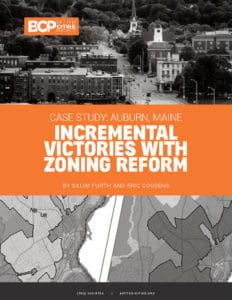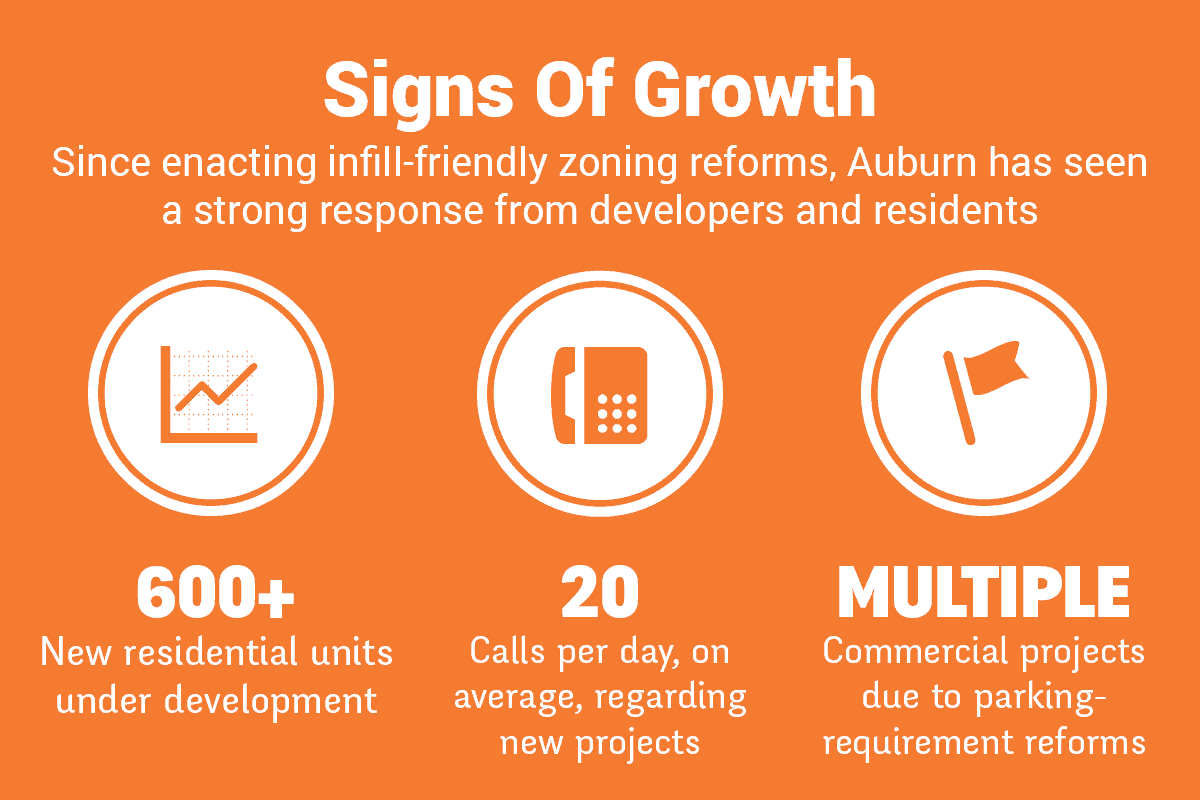
Auburn, Maine, is an American everytown of 24,000 residents. Surrounded by second-growth forests, the city could just as easily be set in Midwestern cornfields or the suburbs of a major metropolis.
Like almost every American town, Auburn has contended with rising home prices; in Auburn’s case, the market shifted a few years before the pandemic as demand overflowed from Portland. For the first time in memory, demand would support unsubsidized, new market-rate apartments in Auburn — if the city could make space for them.
Through a multi-step process involving coalitions, community input and targeted changes to zoning regulations, the city did just that. And although the community is small, both the technical approach they took and the results that they achieved have lessons for communities of any size:
- Ambitious change requires a leader willing to stake political capital.
- Losing one battle – as Mayor Jason Levesque did with Auburn’s Ag Zone – can reveal a constituency that will be an ally on other fronts.
- Sweeping change requires a unifying narrative, clear strategic goals, and honest communication, but piecemeal implementation is practical.
- Broad outreach can fortify reformers so they don’t overreact to the negative voices dominating the top of the pyramid.
- Your community might welcome much bigger changes than you think.
Click on the PDF above to learn more about the process Auburn officials undertook, why they embraced form-based zoning, and the opportunities (and challenges) on the road ahead.










Beyond the spectacle, Kansas City prepares for World Cup reality